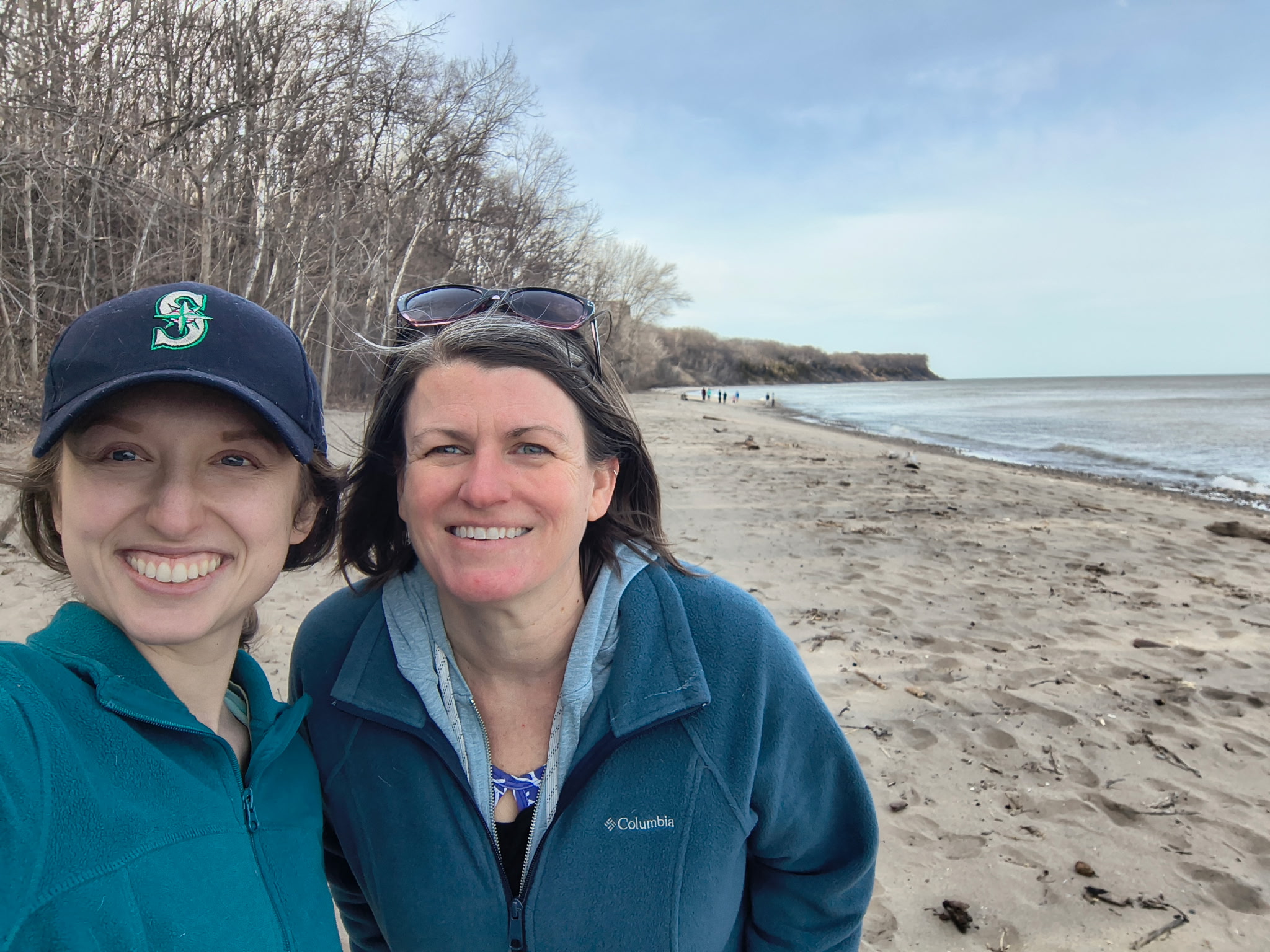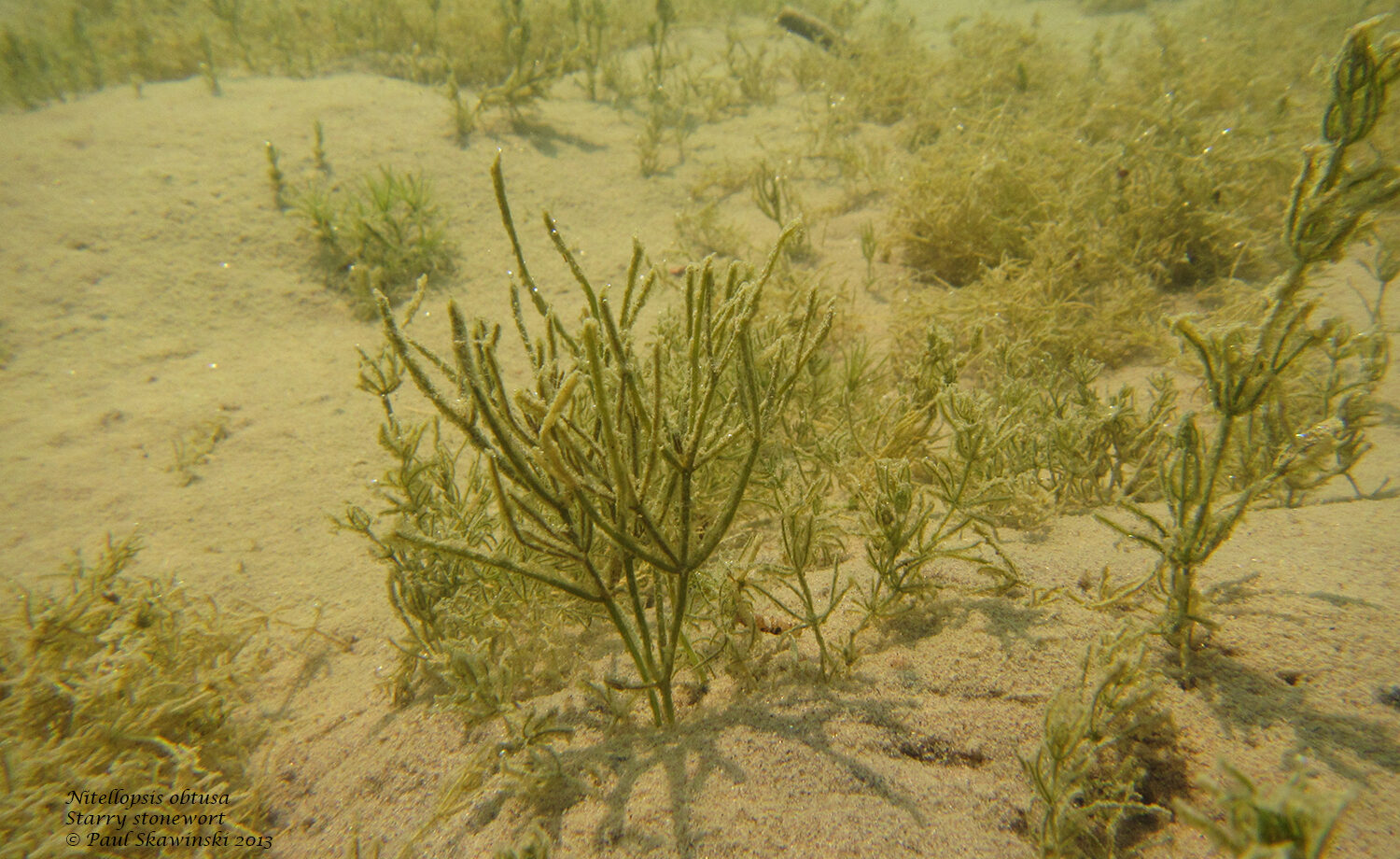Three undergraduates and two recent graduates with bachelor’s degrees were selected through a competitive process that drew interest from students across the nation for a Wisconsin Sea Grant summer internship.
They are joined by an additional two recent graduates, one with a B.A. and the other with a certificate in geographic information services (GIS), to make up the summer intern cohort. Now that Memorial Day 2021—the unofficial start of summer—has passed, the young people have begun their summer experiences in earnest, which include:
- Helping tribal communities understand flooding vulnerability.
- Sharing dangerous current information with Great Lakes beachgoers.
- Cataloging plant species on University of Wisconsin-Green Bay-owned property through the lens of traditional ecological knowledge.
- Communicating about Wisconsin farm-raised and wild-caught fish through videos and a souped-up map indicating where consumers can locate their favorite meal.
- Coordinating on GIS projects to understand ecosystems for the U.S. Environmental Protection Agency (EPA).
- Assessing coastal access sites statewide through the Americans with Disabilities Act lens.
- Creating communications tools in partnership with the Great Lakes Indian Fish and Wildlife Commission (GLIFWC).
Meet the interns who are demonstrating not only proficiency in their chosen internships, but also flexibility in the face of evolving conditions as the pandemic wanes.
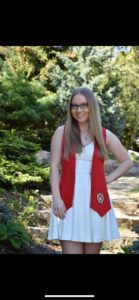
Meghan Wilhelmi will work with the Wisconsin Department of Health Services on a tool that builds tribal communities’ flood resiliency. Submitted photo.
Meghan Wilhelmi is a brand-new graduate from the University of Wisconsin-Madison, where she majored in both history and gender and women’s studies. Over the coming three months, she and mentor Natalie Chin, Sea Grant’s climate and tourism outreach specialist, will offer tribal communities training in use of the resiliency features of an assessment tool developed last year in partnership with the Wisconsin Department of Health Services. The tool provides strategies and tactics for communities to mitigate the effects of flooding. Wilhelmi plans to take a gap year or two before pursuing a Ph.D. in history and is looking forward to the learning experience of this internship. As for her contribution, she said, “I care about the protection of Indigenous peoples and their knowledge and feel passionate about doing anything I can to help work with tribal communities about vulnerabilities to flooding.” Wilhelmi’s passion builds on her extensive college coursework and extracurricular activities focused on understanding communities of color and the importance of a protected environment.
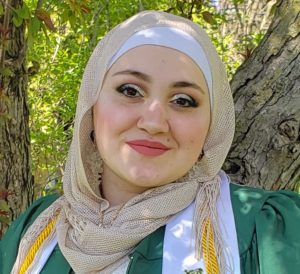
Jumana Tanner will work in Milwaukee to educate Lake Michigan beachgoers about water safety. Submitted photo.
Jumana Tanner is relocating from her home in Madison to Milwaukee for the summer so she can hit the city’s Lake Michigan beaches and share information with McKinley and Bradford beach visitors, talking with them about water quality, staying hydrated and staying safe while swimming in the lake’s powerful waves and currents. It’s part of a beach ambassador program Sea Grant is engaged with along with Milwaukee Riverkeeper, Coastline Services LLC, Milwaukee Water Commons and the Milwaukee Community Sailing Center. This sophomore enrolled at UW-Madison is studying marine biology and will be mentored by Sea Grant’s Social Scientist Deidre Peroff. Tanner said, “The beach ambassador program for Great Lakes Water Safety internship reflects an adequate practice of my enthusiasm to learn and allows me to gain leadership skills.” She continued, “To understand more about our community waters and be able to spread that knowledge by interacting with others with the same excitement provides great opportunity for my growth in the scientific community. It is a way for everyone to care about science the way it cares for us and it breaks the comprehensive disconnect between science and society to live in a more united world.”
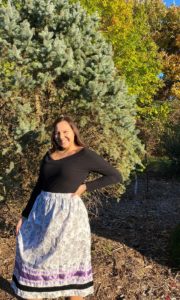
Paige Skenandore will identify and catalog native plants in a Green Bay-area restoration area and through an Indigenous lens. Submitted photo.
Paige Skenandore, along with mentors Julia Noordyk and Stephanie Dodge, will conduct a survey of native plants and apply Native American names to the species as part of an overall restoration project of the Wequiock Creek Natural Area near the University of Wisconsin-Green Bay. Skenandore is a member of the Oneida Nation of Wisconsin and is turtle clan. Noordyk is a water quality outreach specialist and Dodge is a First Nation’s graduate student. Skenandore will be a senior in the fall when she returns to UW-Madison where she is completing a major in Community and Nonprofit Leadership and certificates in American Indian Studies and Environmental Studies. Skenandore said, “This internship will be restoring the traditional languages of a few Wisconsin Tribes around the UW-Green Bay area. Harvesting practices, plant identification and the academics of medicinal plant species is great knowledge that I will be able to bring to the new Indigenous garden on campus, it will complement my major interests, and it will keep me connected in learning and practicing more of my own Indigenous language. While attending workshops and connecting with the surrounding Wisconsin tribal communities, I will be able to help preserve the environment through language and have the ability to connect with other tribal nations throughout the summer.”
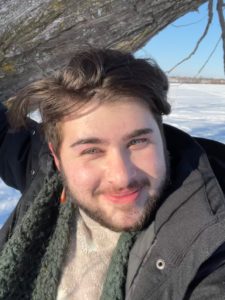
Hunter Goldman will provide online mapping upgrades to the Eat Wisconsin Fish initiative website, as well as produce cooking videos. Submitted photo.
Hunter Goldman will get deep into the Eat Wisconsin Fish initiative—coordinating with mentor Sharon Moen, the initiative’s outreach specialist. They will collaborate on improving a web-based fish-finding map and producing cooking videos under the theme “get saucy with Sea Grant.” Goldman is pursuing a degree in Sustainable Community Development with an emphasis on international development at Northland College. He is a junior. Goldman is also securing a minor in GIS, which will contribute the mapping portion of his summer work. He said, “A requirement for my GIS minor is internship experience, so being able to be a part of this internship program would help me work toward my degree. In addition, the program I am planning for grad school has GIS listed as a desired skill, so being able to accomplish this internship would help me achieve technical skills in a setting other than academic.”
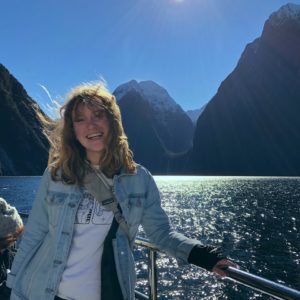
Sophie Glaubius will work on GIS projects with the U.S. EPA. Submitted photo.
Sophie Glaubius will work with mentor Tom Hollenhorst, a research landscape ecologist at the U.S. EPA lab in Duluth, Minnesota, on GIS projects. A May 2021 Beloit College graduate, Glaubius has a degree in geology. She said the internship appeals to her because it is, “A chance to build on my existing GIS and underwater mapping knowledge and explore how geospatial data can be used in conjunction with natural and social science datasets.” As a student, Glaubius completed an imaging research project that compared the spatial distribution of temperature in two different types of springs. She also studied abroad and explored the sea floor with sediment cores, grab samples, multibeam images and boomer seismic profiles. That semester allowed her to, “Engage with perspectives, values and even educational traditions that I was unfamiliar with. In New Zealand, there is a growing focus on traditional Indigenous knowledge, especially in the realm of environmental stewardship. My time there inspired a continued interest in traditional ecological knowledge and how it can influence Western science and my own scientific career,” she said.
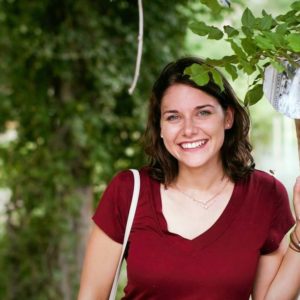
Courtney Gunville will assess the disability access to both coastal attractions and online coastal visualization tools. Submitted photo.
UW-Madison spring 2021 recipient of a fundamental GIS certificate Courtney Gunville has long had an interest in GIS, tourism and ecology. She’ll combine those interests into an internship that’s titled, Using GIS to Examine ADA Accessibility at Coastal Access Sites in Wisconsin. This graduate of Gallaudet University will survey existing websites, the Wisconsin Coast Atlas and Wisconsin Coastal Guide, both of which were built and are maintained by Sea Grant’s Associate Director for Extension and GIS Specialist David Hart. Hart and Chin will act as Gunville’s mentors. Farther down the road could be a coffee table book version of the Wisconsin Coastal Guide. Including disability accessibility information will be critical for that print format, as well as the current online one. For her part, Gunville said, “This project is essential. We need to ensure that for anyone with a disability, the web resources are meeting their needs. We need to be inclusive.” She continued, “I want to develop more inclusion for our future generations.”
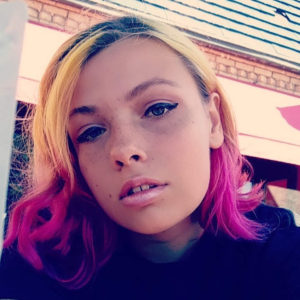
Morgan Coleman will work on building Great Lakes literacy projects. Submitted photo.
With a fresh degree in literature from UW-River Falls, Morgan Coleman will embed herself at GLIFWC for her internship, Great Lakes Literacy and Ojibwe Culture. Coleman and mentors Sea Grant’s Senior Special Librarian and Education Specialist Anne Moser and Paula Maday plan to tap into her writing and reading strengths to create content for GLIFWC’s quarterly newspaper and presentations. Maday is the public information officer for the organization. Coleman will also develop a special project (to be determined) and capitalizes on her skills and interests. She said, “I’m really excited to see what I can do with GLIFWC and Sea Grant this summer. This internship is a great opportunity to develop my skills and use them to help increase Great Lakes literacy.”



